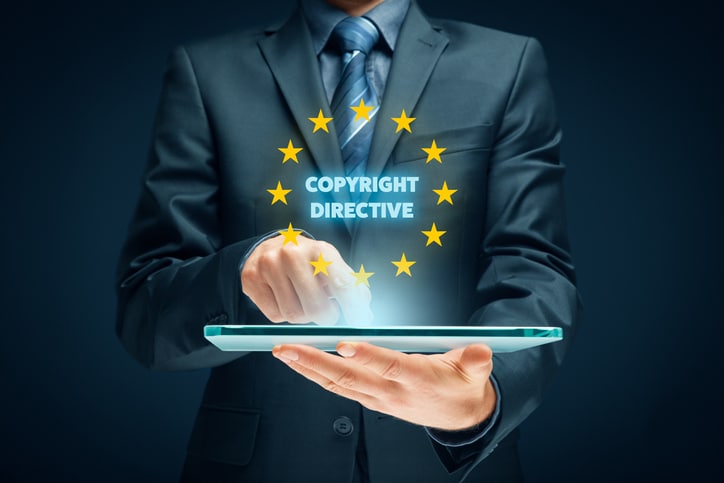Tough new EU copyright law
Reading Time: 2 minutes28th May 2019 | Modified: 19th December 2022Categories: Tech News
Companies that use the web for sales and marketing need to beware the new copyright directive just agreed by the European Union which comes into force in two years’ time.

The directive met a lot of resistance from a number of EU countries but now it’s approved, it will have a real impact on all businesses – whether or not they’re inside or outside the EU.
The key aspects to be aware of are Articles 11 and 13 which impose new restrictions that will change the way many businesses use digital services.
Article 13 makes social media platforms such as YouTube, Facebook and Twitter legally liable for the copyrighted material they host. Material that’s copyrighted can’t be edited and re-used. This applies to everything that’s copyrighted. Images, videos, music. You name it.
Content sharing
If these new rules are broken, EU countries will impose hefty fines for failing to remove any material that infringes copyright.
The directive won’t only affect social media giants. It will also restrict other content-sharing websites and forums. So, if you have a website where, for example, customers or business partners post text, images or video clips, you’ll be responsible for ensuring no unlicensed material appears.
Article 11 enables news channels to recoup more income from online readers by charging social media platforms for publishing links to their news coverage. Up until now, readers have increasingly tended to read only the headlines rather than clicking through to the full story which meant that no income was earned by the news channel.
When the directive comes into force, if a social media platform or any website features links from CNN, The Times or any other channel, a tax will be payable to the news provider.
The only question is, how many countries in the EU will fully implement the directive? It should be transposed into domestic law in each member state, but some countries still don’t always adhere to directives. In fact, according to some recent statistics, Germany and Spain were the biggest offenders in recent years.
The copyright directive may be enforced more effectively than others, because it covers an issue that’s relevant across all borders at a time when digital commerce is rapidly increasing and it replaces rules that are 20 years out-of-date and no longer fit-for-purpose.
Exempt
The good news for smaller companies is fines only apply to larger websites. Any website owner with less than five million monthly unique visitors, or an annual turnover below €10m, can breathe a sigh of relief. Also exempt are start-ups that are less than three years old.
Gary Jowett, from Computer & Network Consultants in Brighton, said: “Smaller companies may be exempt, but any company that provides digital marketing services for other websites may well have to change its approach to content creation or it could lose business when larger clients move to clean up their act to avoid a hefty fine. Many larger organisations often use an ecosystem of smaller suppliers to support their marketing, sales and customer services. So we’re all affected by the new directive and we all need to be more careful about the material we choose to publish and share online.”


